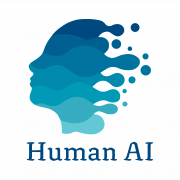Critical thinking in times of artificial intelligence
As artificial intelligence advances, it is logical to wonder in which areas human skills will continue to be indispensable. One of them: critical thinking.
We find ourselves immersed in a constantly evolving era, driven by technological advances and new digital tools that are transforming the way we live, work and learn. However, as we become fascinated with the advantages these innovations offer us, we must also reflect on the challenges they pose.
One obvious issue is to confront how these innovations can undermine our cognitive abilities and lead to a certain intellectual and decision-making passivity. In times of artificial intelligence, there is a need to foster and develop critical thinking as an essential human competence.
In times of artificial intelligence…
We are constantly bombarded. Social networks, apps and personalized algorithms present us with an endless stream of content designed to capture our attention instantly, ephemerally and superficially. Add to this the rapid automation of an increasing number of tasks thanks to generative AI. Generative AI chatbots are excellent at crafting sentences that appear to be written by humans. However, they often present falsehoods as facts or have inconsistent logic.
As a result, our abilities to both concentrate, discern true from false, and think deeply can be threatened. Thus, instead of questioning and analyzing the information generated, we tend to accept it passively, without subjecting it to critical analysis. We have a new viral pandemic: and it is not physical, it is algorithmically driven.
“Critical thinking presupposes having the desire to seek, the patience to doubt, the fondness to meditate, the slowness to affirm, the readiness to consider, the care to put in order, and the hatred for all kinds of imposture.”
Francis Bacon
The best antidote to a future permeated by artificial intelligence is an education that aims to train critical thinking, with which we are capable of:
- Discern between accurate information and misinformation, mediocre and brilliant arguments, identify biases and manipulations, dismantle prejudices and form opinions based on solid evidence.
- Develop a deeper and more reflective approach to learning, problem solving and decision making.
- Foster creativity, logical reasoning and the ability to consider multiple perspectives.
Being a cognitive skill closely related to reason, the purpose of critical thinking is action-oriented and applicable to any aspect of our daily lives, including problem solving or decision making; its scope of influence ranges from personal to work. In short, it allows us to be masters of our thinking and act accordingly.
Rather than replacing us, machines can become catalysts to enhance and nurture our human skills. The more artificial intelligence we have at our disposal, the more creativity and critical thinking we will need.
If you are an education professional or work in the evaluation, assessment and development of competencies, such as critical thinking, request our free demo:





